jewellery vs jewelry english
Related Articles: jewellery vs jewelry english
Introduction
With great pleasure, we will explore the intriguing topic related to jewellery vs jewelry english. Let’s weave interesting information and offer fresh perspectives to the readers.
Table of Content
The Jewellery vs. Jewelry Debate: A Guide to Proper English Usage
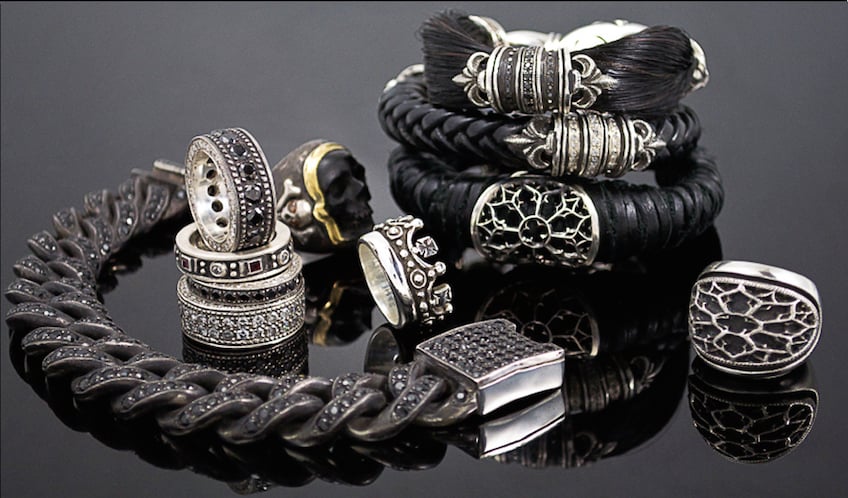
The choice between "jewelry" and "jewellery" often sparks confusion among writers and speakers alike. Both spellings are widely used, but one is considered the standard in American English, while the other reigns supreme in British English. This article aims to clarify the differences between these two spellings, delve into their historical origins, and provide practical guidance for choosing the appropriate form depending on the context.
Understanding the Differences: A Historical Perspective
The word "jewelry" originates from the Old French term "jouel," meaning "jewel." Over time, the spelling evolved, becoming "jewelrie" in Middle English. In the 17th century, the "ie" ending was replaced with "ry," resulting in "jewelry," which became the preferred spelling in American English.
The British English spelling "jewellery" emerged from the same historical root but retained the "ie" ending, maintaining the original French spelling. This difference in spelling reflects the distinct linguistic paths of American and British English, where various words have evolved differently over time.
Beyond the Spelling: A Deeper Dive into Usage
The choice between "jewelry" and "jewellery" primarily hinges on the geographical context. In the United States, "jewelry" is the universally accepted spelling, while "jewellery" is considered incorrect. Conversely, in the United Kingdom, Canada, Australia, and other Commonwealth countries, "jewellery" remains the standard spelling.
It is important to note that both spellings are grammatically correct within their respective regions. However, using the "wrong" spelling can lead to confusion and even raise eyebrows among readers familiar with the standard usage in their geographical context.
Practical Tips for Choosing the Right Spelling
- Consider your audience: When writing for a global audience, it is generally advisable to use the spelling "jewelry" as it is more widely understood. However, if writing specifically for a British audience, "jewellery" is the appropriate choice.
- Check the style guide: If you are writing for a specific publication or organization, consult their style guide for their preferred spelling. Many publications have established guidelines for spelling, grammar, and punctuation, including the choice between "jewelry" and "jewellery."
- Be consistent: Throughout your writing, use the same spelling consistently. Switching between "jewelry" and "jewellery" within the same document can appear unprofessional and confusing.
FAQs about the "Jewelry" vs. "Jewellery" Debate:
1. Is it ever acceptable to use "jewelry" in British English?
While "jewellery" is the preferred spelling in British English, using "jewelry" in informal contexts or online platforms is not considered a major error. However, in formal writing, it is best to stick to "jewellery" for consistency.
2. What about other words with similar endings?
The "jewelry" vs. "jewellery" debate extends to other words with similar endings, such as "machinery," "stationary," and "advisory." The American English spellings "machinery," "stationary," and "advisory" are preferred in most contexts.
3. Does the spelling affect the pronunciation?
No, the pronunciation of both "jewelry" and "jewellery" remains the same, with the emphasis on the first syllable ("JEW-el-ree").
4. Is there a "correct" spelling?
There is no single "correct" spelling for this word. Both "jewelry" and "jewellery" are grammatically valid, but their usage depends on the geographical context and the intended audience.
5. What about the word "jewel"?
The word "jewel" remains consistent in both American and British English, with no variation in spelling.
Conclusion: Navigating the Spelling Landscape
The "jewelry" vs. "jewellery" debate highlights the fascinating evolution of language and the differences that emerge across geographical boundaries. While both spellings are valid, understanding their respective contexts and adhering to the appropriate usage ensures clear and professional communication. By considering the audience, consulting style guides, and maintaining consistency, writers can confidently navigate this linguistic landscape and avoid potential confusion.
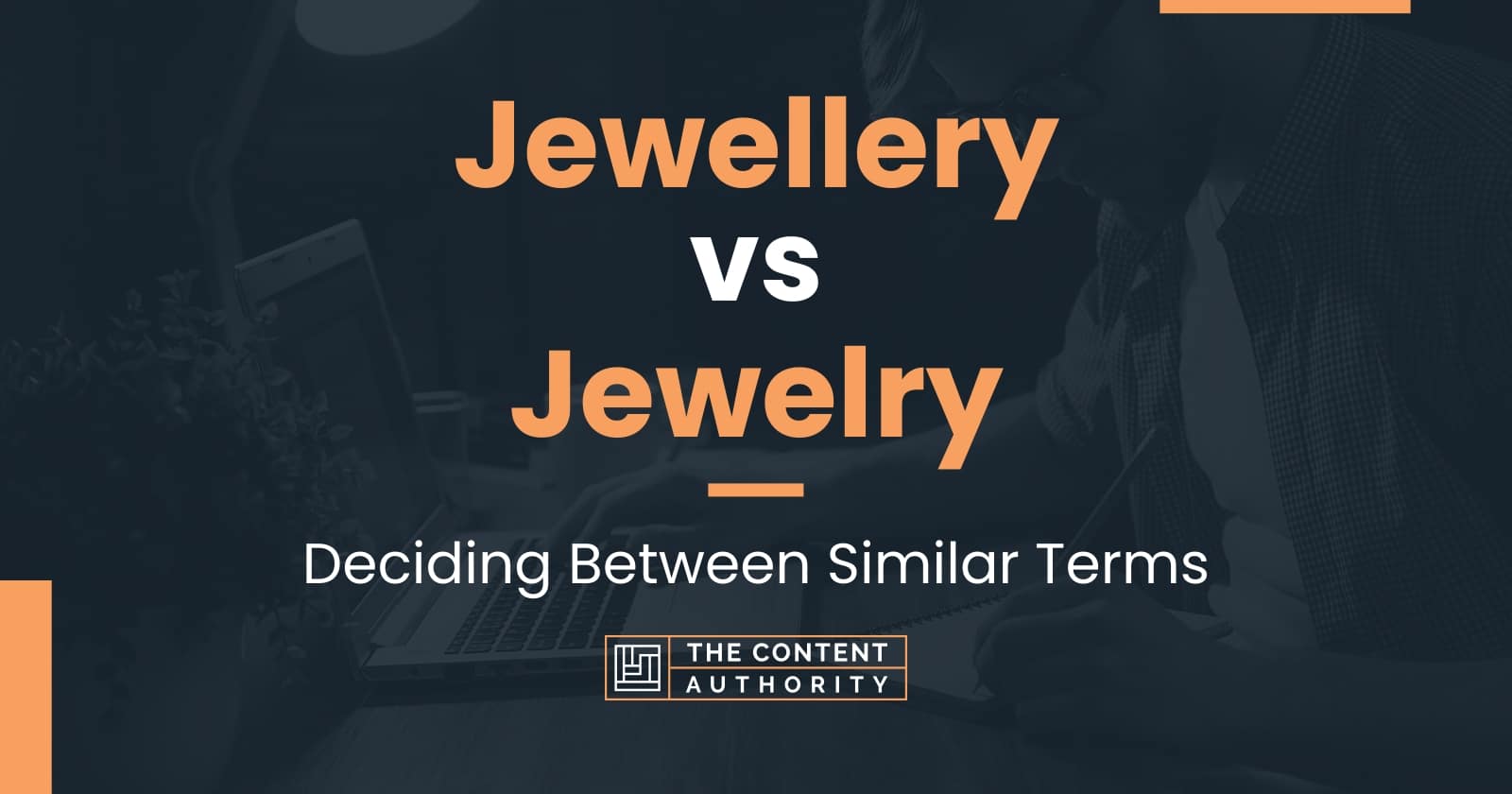

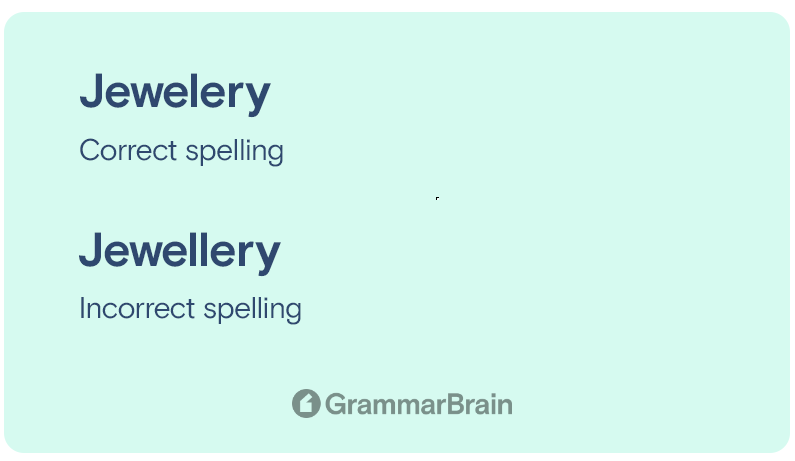
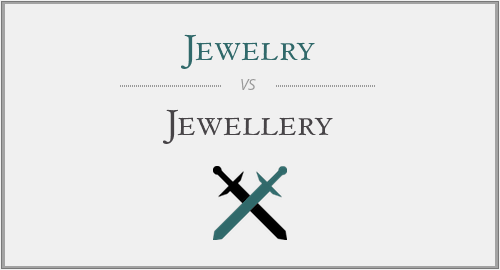

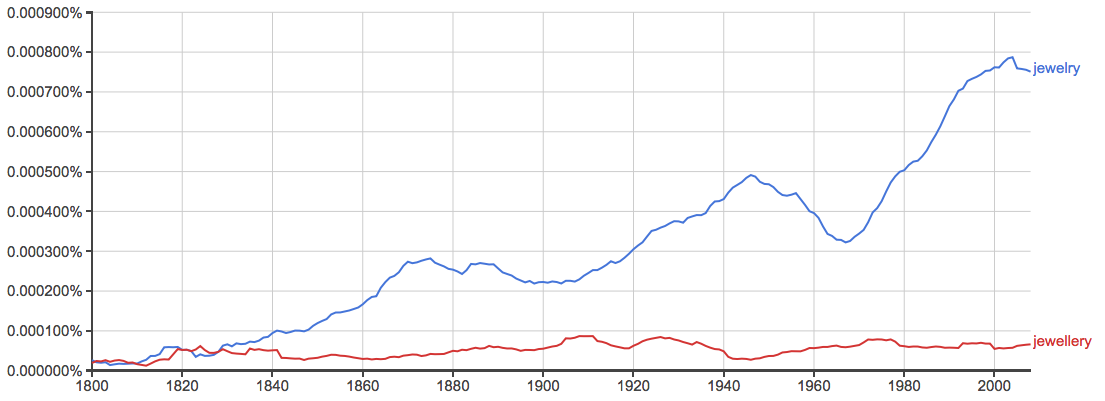

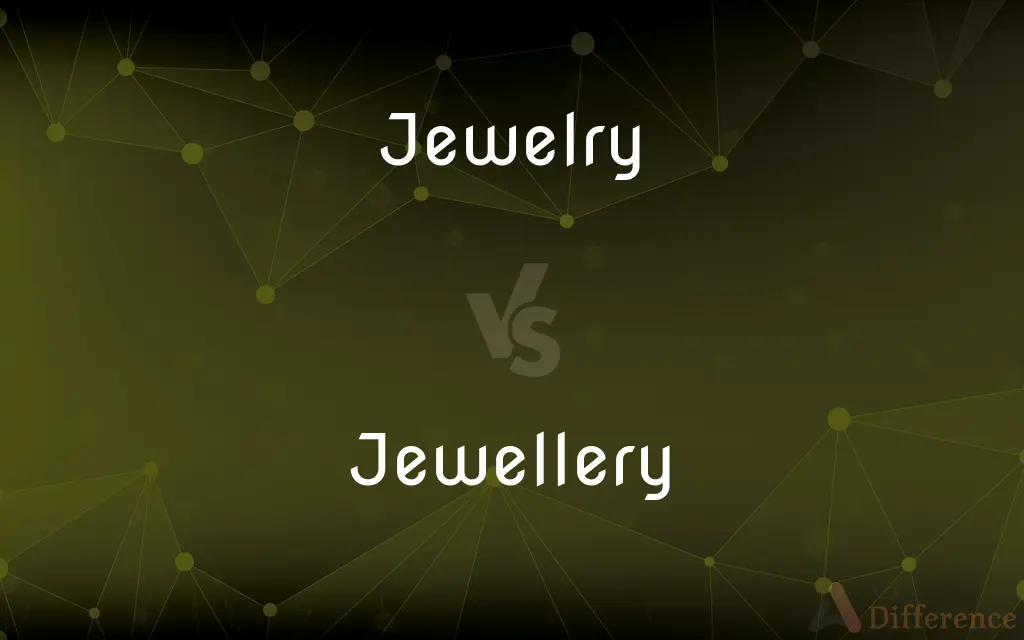
Closure
Thus, we hope this article has provided valuable insights into jewellery vs jewelry english. We thank you for taking the time to read this article. See you in our next article!